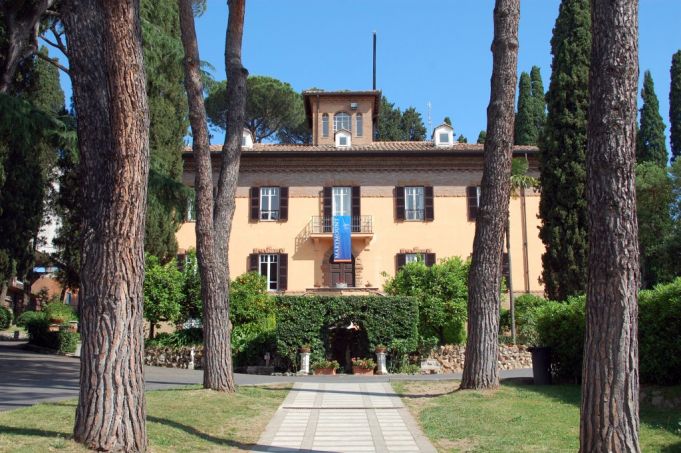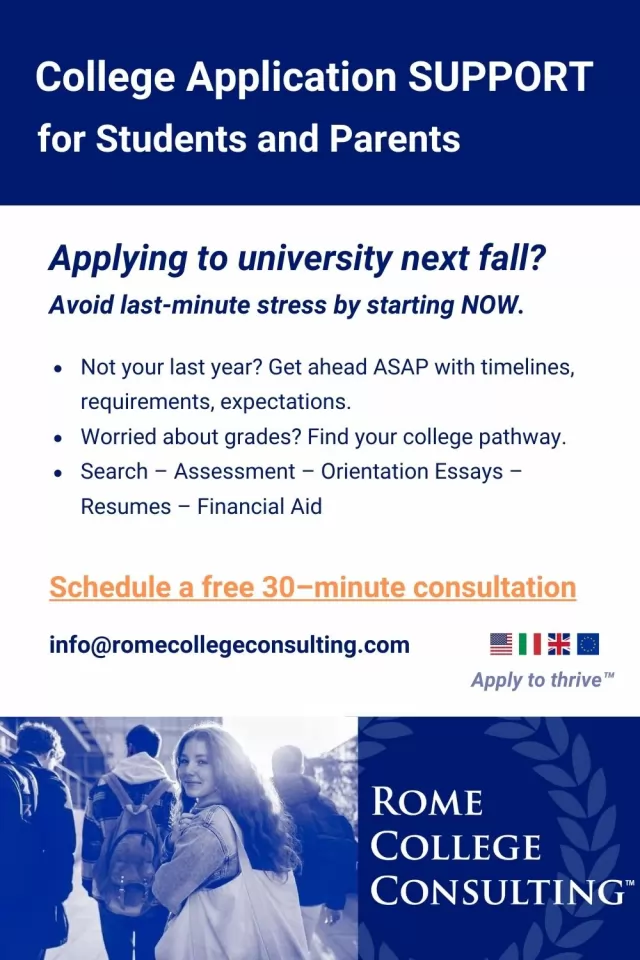Page open to young Wanted in Rome readers.
This pretend-interview with Judy Boone, a character with Asperger’s Syndrome from The Curious Incident of the Dog in the Night Time, was written by 14-year-old Gennaro Fusillo whose English Literature class at Marymount International School has been studying the 2003 mystery novel by British writer Mark Haddon. The book has also been adapted into an acclaimed theatrical production, by Simon Stephens and directed by Marianne Elliott, which has been staged at both Broadway and the West End, winning seven Olivier Awards including Best Play.
I arrived at Mrs Boone’s house at three o’clock. After I rang the doorbell twice, she opened the door and welcomed me in with a nervous smile. It was quite obvious that she was feeling uncomfortable and that she wanted to make a good impression on me. She led me to her living room and invited me to sit down. Then she asked me if I wanted a cup of tea. I gratefully accepted and waited a few minutes while she brought it. When she finally sat down, I noticed that she was wearing a lilac dress with pink flowers. Her hair was tied behind her ears, but a few strands of brown hair had escaped and framed her face. I couldn’t help but notice that she was fidgeting with her hands, and she kept looking around the room as if to check that everything was in order. After a few pleasantries designed to put her at ease, I decided to start my interview.
Q: When was the first time you noticed that your son was affected by Asperger’s syndrome?
A: I don’t really remember the exact moment. I started seeing different signs when he was just a little boy. However, I think the moment he started kindergarten, everything became clear. The teachers called us because they noticed that he wouldn’t interact with the other children, and that he would even hit them if they got too close to him or tried to touch him. So, my ex-husband and I decided to take him to the doctor and that’s when we found out the truth.
Q: What was your favourite memory of Christopher growing up?
A: I vividly remember a Christmas we bought Christopher a train set. He was so happy he refused to go to sleep that night because he wanted to keep playing. He was obsessed with it for a while. Ed and I explained to him about timetables and he loved that part so much he made his own. You see, he always likes to know the exact time. This is probably my favourite memory of him as a child.
Q: Was it difficult to raise a child with this condition? What was the hardest part?
A: Yes, raising a child with this condition wasn’t easy. For a very long time I believed I wasn’t a good enough mother to Christopher, but the truth is I did my best. Ed was always better at it than I was. Christopher wasn’t an easy child to bring up. He frequently threw tantrums, for example, when I had to prepare his meals. I don’t know if you know this, but Christopher hates the colours yellow and brown, so he always refused to eat anything with that colour. I admit that it was very tiring for me at times. The worst part was that I
couldn’t explain my feelings to him so we always ended up arguing.

Q: I know that you left your family a few years ago. Do you regret your decision?
A: At the time, I thought that was the best for them and for myself. I needed a break from that life and I thought that Christopher would have been better off with his father. However, I now realize I was wrong and there is not a day that goes by in which I don’t regret having left my son. I am glad though that we were able to rebuild our relationship.
Q: So, you have now mended your relationship with your son. What activities do you do together?
A: Christopher and I don’t really have a lot of things in common. He really likes math and science, which I admit are not my best subjects. However, I do enjoy spending time with him. Sometimes we watch the nature programs on TV together, while other times I take him with me at the garden centre and we look at the different plants. He always knows a lot of stuff about them.
Q: I know it must have been extremely difficult for a mother not to be able to have physical contact with her son. As we both know, children with autism frequently dislike hugging, kissing or contact of any kind. How did you overcome this problem?
A: It wasn’t easy by any means, especially at first. It took some getting used to. Even now, sometimes I forget that I am not supposed to hug him. To make up for it, Ed and I came up with a sign all of our own. We spread our hands in a fan and touch our finger tips likes this [she demonstrates]. It seems a little silly at first but its special to us and Christopher knows we love him when
we do that.
Q: Christopher is doing a lot better now. I know he has passed his Further Maths for A level exam with flying colours and he is headed for university in a couple of years. What do you think has helped him most?
A: I am so proud of Christopher right now. He was able to reach his goal and pursue his interest in math. I think his teachers at the school, particularly Miss Siobhan, have helped him a lot. His trip to London a few years back also helped him gain confidence in himself and has encouraged him to do even better.
Q: You suffered from depression a few years ago. It must have been very difficult for you to accept that life would never be the same now that you had to take care of a child with disabilities. How did you surmount that obstacle? What advice can you give to other parents with children who suffer from autism?
A: As I have said before, raising a child with autism was very difficult for me. It put a strain on my relationship with my husband and caused me to severely doubt myself. There were days I thought I was completely invisible in my house, since I felt that no one understood how I felt. That was the lowest moment of my life. Now, however, I have learned how to control my emotions better and take better care of myself. It is still hard sometimes, but I have learned how to appreciate the good times more. My advice to other parents is to take it one day at a time. Some days will be difficult and will make you want to tear your hair out, but seeing your child grow up will make up for all of it.
By now it was past four o’clock (4:14 pm as Christopher would say). I bid my farewell to Mrs Boone and thanked her for her time. As I was walking to my car, I saw a young teenage boy walk to the house. He was carrying a book on physics and was so caught up in it he didn’t even notice I was there. Who knows, maybe one day I’ll see that boy again. At that time, he might have become a renowned scientist, or maybe even an astronaut.
Gennaro Fusillo
















